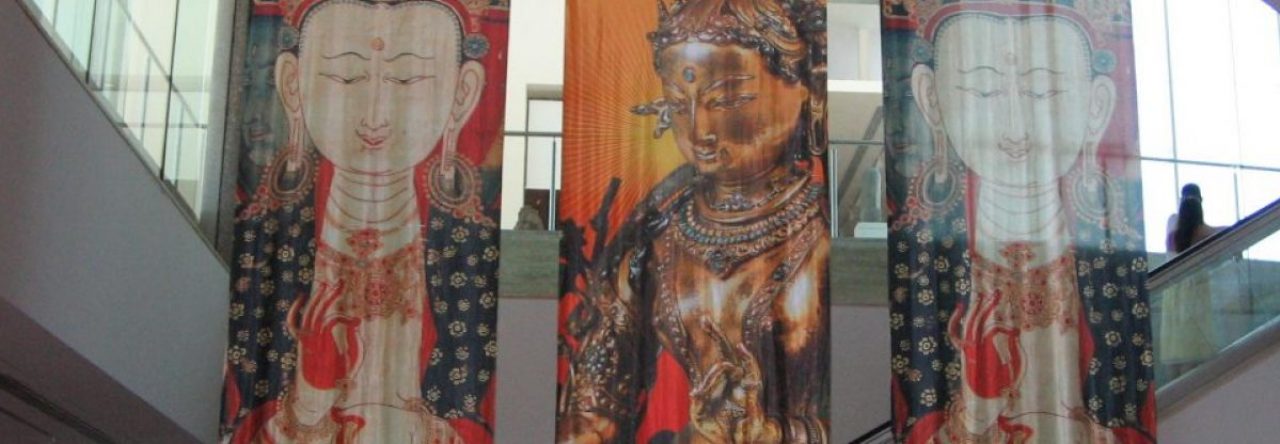There’s a story in a Buddhist text (the Honeyball Sutta) that the Buddha was meditating in the forest one-day when an old man from his own home tribe came by and challenged him: “What’s your doctrine, Recluse?
“My doctrine, Friend, is such that I don’t argue with anyone; a doctrine wherein one who is free from attachment is free of the underlying tendencies which beset of person (and which lead to violence).”
What might this look like in practice? There’s a story on the focusing.org site about a man in Afghanistan, who argued with his neighbour over water rights. So angry was he that he went back to his home to get a weapon. – no doubt, in his view, to return and revenge his honour.
However, this man had been taught Focusing, so that while at his home it occurred to him that he may ‘have a guest.’ A guest in the heart is a ‘someone’ (you could say) who is not intrinsic to the human heart. So he sat down, there, and looked inward at his feelings and at the ‘more’ which came there – some of the ‘underlying tendencies,’ the Buddha might say.
And indeed he did discover that it was a ‘guest’ and not his authentic self who wanted to return in violence to his neighbour. So, instead, he returned and told his neighbour that he would take his water rights the next day and his neighbour could have them today. His surprised neighbour asked what had happened, so he told him about Focusing.
In my view, Focusing is a way of contacting the subtle source of meaning-making in the felt body. It’s a way of transforming and not maintaining the tendencies to division in us which give rise to so much human conflict.
The man’s neighbour was impressed, and as a result the village set about expanding the opportunities for Focusing. They set up a house for purpose. (You can read an account of the story here.)
I talk about the necessity for us to learn how – in whatever way we can – how to listen deeply, to ourselves and to others. The violence between us and against nature, this is optional. It may take decades, or centuries, but it is created by thought, not by organic nature. We can engage in a learning which is of the nature of an unlearning.
To do this we have to be willing to meet our habits of ‘mind.’ I know, from practice, that it’s a daunting proposition. You might think, if it means that we have to know our own thoughts for there to be peace between humans… well, that’s a two thousand years project. This may be the case; but what choice do we have? More importantly, though, we can begin to feel some changes and benefits now.
I remember talking with a friend many years ago and telling her how I was learning mindfulness. On hearing that it means being aware of everything about yourself, as it’s happening – your body, feelings, sense perceptions intentions and thoughts – she exclaimed, “Oh, God! I don’t want to know what I’m thinking!”
It is nevertheless possible to survive such intimate self-knowledge, and it really does make a difference to the quality of your relationships. In fact, it changes everything if you follow it through to the root. It does transform the ‘underlying tendencies’ which give rise to discord. We become a ‘guest house’ for whatever negativity or exaggerated passion which may surface; so that, like the Afghani man, we realise we are more than our desires and hungers – more than the stuff of our personalities.
We are forever hankering after and yet resisting the world as it is – the world with all its insecurity, all its loss, all its changes. I think my friend felt there was something she’d lose, to know herself so intimately. Yet, when we give up concocting reality, something priceless remains. And that knowledge provides, as the Buddha would say, “a pleasant abiding here and now”; complete, I need to add, with all the power you need to stand against injustices. The end of being run by the underlying tendencies to division is: peace of heart, a flourishing inner life, and an energetic, engaged life.
Our Afghan friend in the story was inspired by the Rumi poem “The Guest House.” This poem was perhaps inspired by an earlier teaching of the Buddha:
“In a guest house, Practitioners, people from the east may take lodgings, or people from the west, north or south. People from the warrior caste may come and take lodgings there, and also brahmans, middle class people and the underclass.
“Similarly, Practitioners, there arise in this body various kinds of feelings; there arise pleasant feelings, painful feelings and feelings which are neutral; there are gross feelings that are pleasant, painful or neither; and subtle feelings that are pleasant, painful and neutral.”
The Buddha’s way was to be kind, compassionate, and dispassionate toward our ‘guests.’ Rumi said, “Greet them at the door, laughing.” They are transformed by relating with understanding.
